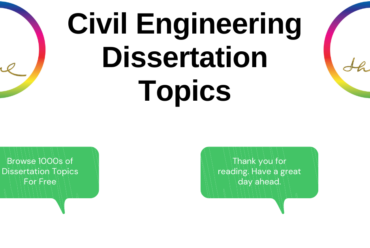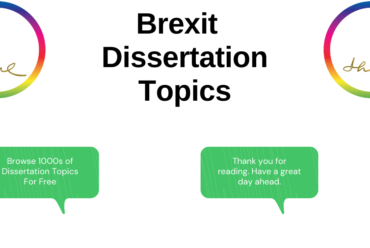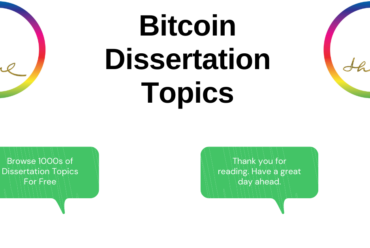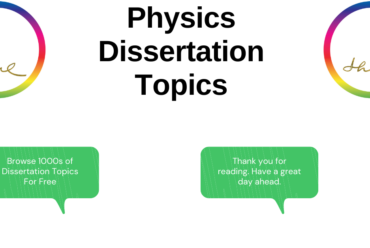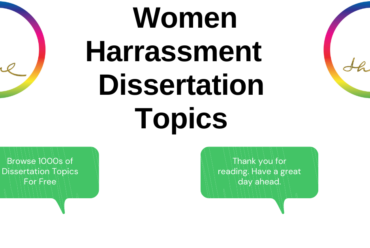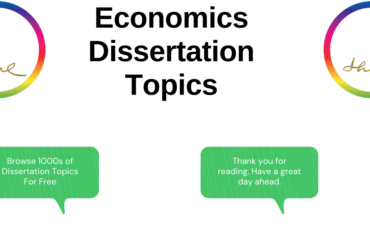Social Media and Youth Dissertation Topics
The usage of social media by young people has grown deeply ingrained and has become a critical gauge of their self-worth. Five unique subjects that delve into a variety of difficulties surrounding young people’s use of social networking sites such as Facebook and Twitter.
Editingarsenal has compiled a list of some of the most popular and common dissertation topics from a variety of academic disciplines, so you can pick and choose what to write about. If you need dissertation editing assistance , don’t hesitate to contact one of our qualified and experienced editors and proofreaders.
- Recent elections in Western Europe and North America demonstrate how essential the internet has become for political dialogue. On the other hand, is social media a vehicle for political polarisation? How is this affecting the next generation? Are social networking sites rekindling young people’s political interests, as indicated by the wave of support progressive movements have received across Western Europe and North America? The Design of Everyday Life with Radical Technologies, London: Verso, Greenfield, A. (2017)
- Is social media to blame for the surge in mental illness among young people?
- In recent years, there has been a noteworthy increase in the prevalence of mental illness among young people, particularly in North America and Western Europe. Is a correlation established between the rise in mental illness among young people and the rising usage of social media? How is the rising usage of social media affecting the mental health of young people? O’Reilly, T. (2017) WTF? What Is the Future and Why Are We Responsible for It? Harper Business Publishers, London
- Youth and social media—Are young people turning away from traditional media?
- The development of social media has affected the way people get information significantly. Social networking enables information to flow freely and the horizontal spread of global knowledge. Is social networking displacing traditional media among young people? How is this phenomenon affecting the lives of young people? A. Humphreys, Oxford University Press, Oxford, Social Media-Permanent Principles.
- Is the proliferation of “fake news” having an effect on young people’s social media use?
- In recent years, social media has been blamed for the spread of “false news.” Individuals can freely express themselves via social media. This means that a vast lot of untrusted material travels on social media. Is the proliferation of “fake news” having an effect on young people’s social media use? Is this an issue for children and adolescents? D. Brake (2016). Sharing our Lives Online: Social Media Risks and Exposure. Palgrave, Basingstoke and New York Macmillan.
- Has social media turned into an educational tool for developed-world youth?
- Social scientists believe that social networking has the potential to be a very beneficial educational tool. What is the rate at which this methodology is being adopted by youth? Have youth accepted social media as an educational tool? Has social networking evolved into a tool for boosting young people’s educational experiences?
- Social media can serve an unexpected protective role in assisting young people in developing resilience.
- While young people’s usage of social media has garnered considerable negative attention due to the risks involved, many feel that moderate use of social media can assist young people develop resilience and well-being. However, what does’moderate use’ entail precisely, and how is it achieved? Is moderate social networking use more advantageous for particular subgroups of young people, such as those who struggle with mental illness or identify as LGBT? E.S. Chong, Y. Zhang, W.W. Mak, and I.H. Pang published “Social Media as Social Capital of LGBT Individuals in Hong Kong: Its Relationships with Group Membership, Stigma, and Mental Well-Being.” The Journal of Community Psychology in the United States of America, 55(1), pp. 228-238.
- Connected journalism: how social media can wreak havoc on the newsroom.
- According to connected journalism, young people learn about competing ideas via social media platforms such as Facebook and Twitter. Instead of a staff of experts producing and editing news, social media and networking are increasingly being utilised to generate it. Is there a chance that this procedure will cause complications?
- Has social media affected the interaction between students and teachers?
- Teachers connecting with their pupils via social media raises the question of whether this is permissible and, if so, where the boundaries should be placed. Are there any mechanisms in place to provide feedback to teachers and students on their interactions? The following is a bibliography of sources: D. Miller, E. Costa, N. Haynes, T. McDonald, R. Nicolescu, J. Sinanan, J. Spyer, and Venkatraman (S). The Global Impact of Social Media. London: UCL Press.
- How civic education can benefit from social media.
- Investigating one’s national identity and heritage via social media is a critical component of children’s and adolescent citizenship education. Individuals in developing nations may be disadvantaged by a lack of access to social media technology, and citizenship education may be considered. Authorities referenced include Elinor L. Brown, Anna Krasteva, and Maria Ranieri (eds). 2016. Education and citizenship in the twenty-first century’s digital age: eLearning and social media. Charlotte, North Carolina: Information Age Publishing
- Connections via social media for collaborative learning.
- This topic examines social media in order to gain a better understanding of how collaborative learning and cultures develop within a community. Because learners are continuously on the lookout for knowledge, and because they have the power to share it, they should be considered as co-producers of material rather than simply consumers. For additional information, see Sharratt and Planche (2016). Collaborative Learning Empowers Excellence Corwin asserts I was born and reared in Thousand Oaks, California.
- Education of youth and transmission of current events via social media.
- There are a number of benefits and drawbacks to using social media to educate young people about real-world stories and events, and this must be carefully considered. What does the term “truth” mean? True stories are those that are based on true occurrences. Who decides whether something is factual or beneficial? These are the only questions that may arise as a result of your investigation. The complete text of this article may be found at Pickard and Yang 2017 [eds]. Media activism in the information age. London: Routledge.
- The social lives of social media-savvy teenagers are inextricably linked.
- There has never been a greater variety of social media channels available to teenagers than there is today. Is each platform designed to fulfil a distinct social function for teens, and how do they interact? D. Boyd (2014, December). It’s a perplexing situation: Today’s networked youth’s social interactions. New Haven, Connecticut: Yale University Press.
- Social media and mental illness: online ‘thinspiration’ and ‘pro-ana’ communities
- Social media, particularly visual platforms such as Instagram and Snapchat, can have a substantial impact on how young people see their bodies and their level of satisfaction with them. The severity of eating disorders has been observed to be greater in those who participate in online forums that promote severe dieting behaviours through ‘thinspiration.’ Certain anorexia proponents even push individuals suffering from eating disorders to deteriorate rather than seek treatment. Access is granted to these groups in a number of ways and for a variety of reasons. ‘What variables contribute to the internalisation of pro-ana websites’ content? published in 2015 by J. Homewood and M. Melkonian. 86(9):e3-e3. J Neurol Neurosurg Psychiatry.
- How addictive are social media platforms, and what are the long-term ramifications?
- To connect with their friends and feel a sense of belonging, young people seek out and strongly invest in any platform that facilitates this connection. Many people feel that social networking sites such as Facebook and MySpace can be used by youngsters to obsessively monitor and engage with one another. What is the point at which a compulsion becomes an addiction? What are the physical and psychological signs and symptoms of addiction?
- What can we infer about young people’s politics from their social media behaviour?
- The ruling parties recognise the critical role of social networking sites in involving young individuals (18+) in their policies. For instance, the surprising outcome of the 2017 UK general election was credited to the mobilisation of the youth vote via social media outlets. Thus, how do young people engage in politics via social media, and what effect does this have on voting habits? B.D. Loader, A. Vromen, and M.A. Xenos (2014) are cited. Social media, political activism, and civic engagement are all increasing in popularity among today’s networked youth. Routledge.

